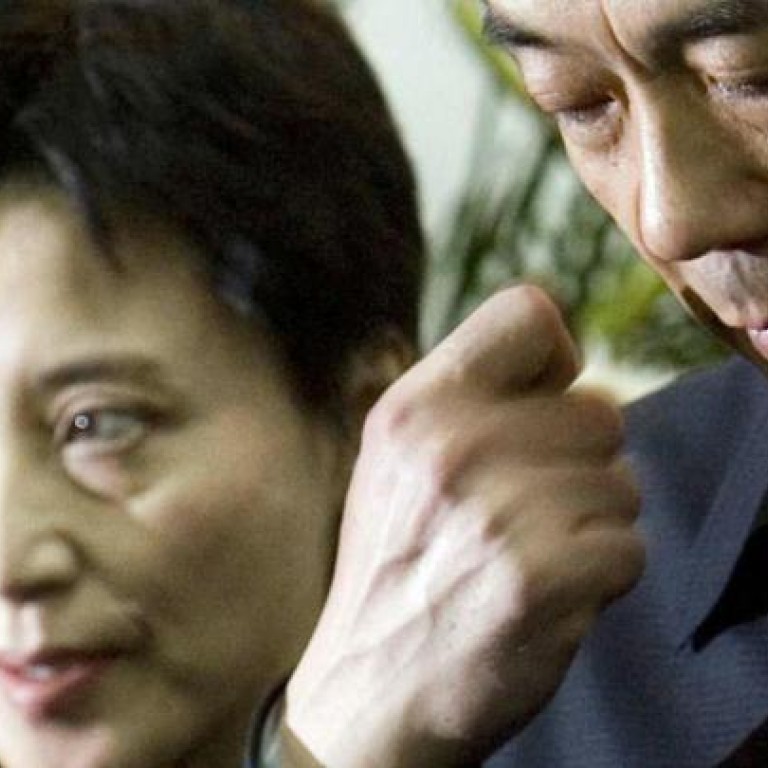
End of Bo Xilai saga looks to be bad news for rule of law
Now that we've seen how the courts dealt with Gu and Wang, there is little hope ex-party chief's trial will be open and fair
Act III of the Bo Xilai saga has begun but it is likely to be brief, to clear the stage in time for the party's congress early next month.
However, if the trial of the former Chongqing party chief is just a show trial - like that of his wife Gu Kailai and his right-hand man, police chief Wang Lijun - it will be another blow to hopes for the rule of law on the mainland.
Many have contrasted the trial of Gu on August 10 with that of Jiang Qing , Mao Zedong's widow, 32 years ago after the fall of the Gang of Four, and note that while Jiang was given a chance to defend herself, resulting in an emotional, televised rant, Gu's seven-hour trial was disappointingly scripted.
Lack of drama aside, the trials of Gu in August and Wang last month exhibited troubling procedural irregularities and left many questions unanswered.
Gu was given a suspended death sentence for murdering English business partner Neil Heywood and was spared immediate execution only because the court accepted that she acted out of fear that Heywood might harm her son and that she suffered from psychological impairment. Meanwhile, Wang was given only a 15-year sentence for serious crimes like attempted defection, covering up Heywood's murder and taking bribes because the court said he turned himself in and that he "made significant contributions" to the subsequent investigation.
Gu's murder trial at the Hefei Intermediate People's Court lasted just seven hours, with no witnesses called. And while it was meant to be an open trial, with 140 people in attendance, they were all there by invitation. Wang's trial at the Chengdu Intermediate People's Court lasted for two days: four hours behind closed doors on the attempted defection charge on the first day; and a second day of supposedly open trial, where those in attendance were also invited.
Neither Bo nor the couple's son, Bo Guagua , both presumably key witnesses in the murder case, attended either trial. Only witness statements and expert statements were read at court, and the defendants all looked incredibly calm and admitted guilt.
The trials appear wanting in at least three respects.
First, it is difficult to be convinced that the defence lawyers were not assigned, at least in Gu's case. Gu's mother had told foreign media that she initially hired two renowned Beijing criminal lawyers to defend her daughter, but they never got to meet her. It was later revealed that Gu hired two Anhui lawyers who did not specialise in criminal law.
The authorities have often made defendants in controversial cases pick government-friendly local lawyers in recent years. But during the trial of the Gang of Four, the defendants were allowed to be represented by a team of the country's best criminal lawyers, including Zhang Sizhi . Why aren't the courts confident enough to allow true representation today?
Second, while it is an understandable precaution for high-level corruption trials to take place in a different province, where the defendant will have less influence, there should be more detailed standards and procedures for the relocation of trials.
Lastly, open trials should be truly open. Under law, all trials on the mainland must be open to the public unless they deal with state secrets or minors, or when privacy or business secrets are concerned. However, another common tactic used by authorities in sensitive trials is to choose very small courtrooms or pack them with selected "members of the public".
Two other Politburo members have faced trial since the mainland embraced reform and opening up - former Beijing party secretary Chen Xitong in 1998 and Shanghai party secretary Chen Liangyu in 2008. If history is any guide, the chances of Bo enjoying a true open trial are slim. Family members were allowed to attend Chen Xitong's trial, but the trial of Chen Liangyu was criticised for being held in a room that could contain just 30 people - even his wife was refused entry.
Show trials can no longer satisfy the public's curiosity, even less their right to know.
Bo Guagua, in the US, has already voiced his suspicions to the foreign media. And so has top forensic expert Wang Xuemei , who openly questioned - in the absence of the usual symptoms - whether Heywood died from cyanide administered by Gu.
Only greater transparency and a real trial for Bo can show that the authorities are seriously determined to weed out corruption in a system that is losing public trust.
